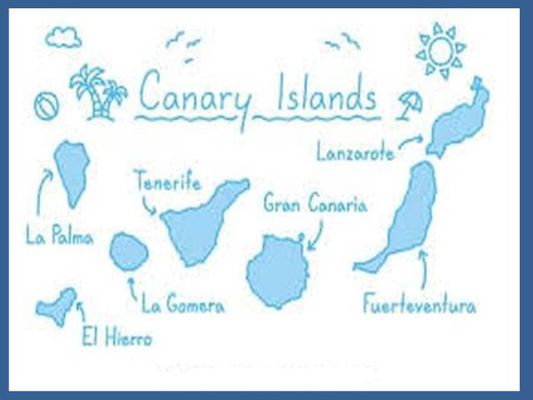Integrating People Coming from Different Cultures
The reasons of our international meetings are: a better acquaintance of partners’ educational systems in seminars or workshops, the discovery of partners’ culture, language, traditions by direct contact, a wider teachers’ integration in European education community, a larger teachers’ competences development, applying strategies, methods learnt from partners, a real integration of our pupils in the European community, living in host families, cooperating with friends. The evaluation conclusions of each project activity will be included in the educational strategy of our schools, reflected in management plans, new optional courses or school subjects, contests and symposiums inspired by the project. They will be useful for us in the coming years, sharing them with young teachers in our schools, promoting them on didactic platforms. By sharing best practices, applying a whole school approach, building effective parent-school partnership, achieving action plans to use gained knowledge and tools in practice, we will succeed to integrate people coming from different cultures including refugees.
Gabriela Mirela Jugar, coordinator ”C. Noica” High School Sibiu
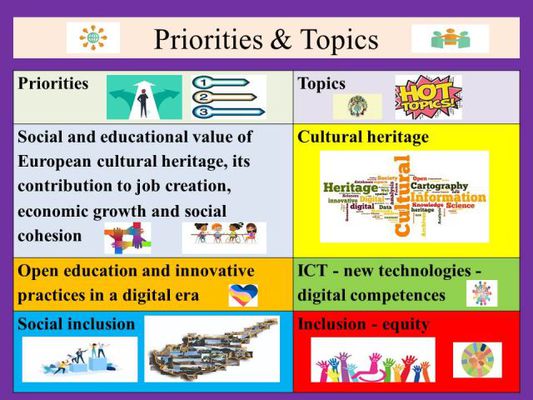
Integrarea oamenilor care provin din diferite culturi
Motivele întâlnirilor noastre internaționale sunt: o mai bună cunoaștere a sistemelor educaționale ale partenerilor prin seminarii sau ateliere, descoperirea culturii, limbii, tradițiilor prin contact direct, o integrare mai largă a profesorilor în comunitatea de învățământ europeană, o mai mare dezvoltare a competențelor profesorilor, aplicarea strategiilor, metodelor învățate de la parteneri, o reală integrare a elevilor noștri în comunitatea europeană, locuind la familii gazdă, cooperarea cu prietenii. Concluziile de evaluare a fiecărei activități a proiectului vor fi incluse în strategia educațională a școlilor noastre, reflectată în planuri de management, noi discipline școlare sau cursuri opționale, concursuri și simpozioane inspirate din proiect. Ele vor fi utile pentru noi în anii următori, împărtășindu-le profesorilor tineri din școlile noastre, promovându-le pe platforme didactice. Prin împărtășirea celor mai bune practici, aplicarea unei întregi abordări școlare, construirea unui eficient parteneriat școală-părinți, realizarea de acțiuni cu intenția de a folosi cunoștințele și instrumentele dobândite în practică, vom reuși să integrăm oamenii care vin diferite culturi, inclusiv refugiați.
Daniela Cioplea, profesor, Liceul ”Constantin Noica” Sibiu, România
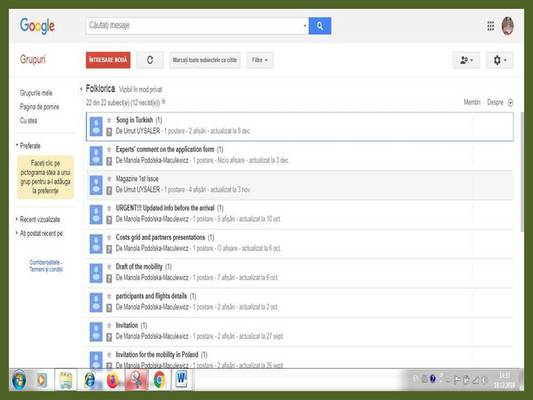
Our Project Objectives
Our objectives are: to explain the role of folklore by seminars, slide shows, exhibitions, to provide pupils’ opportunity to work with partners, to form willingness to learn English language. We will organize yearly conferences in each school to promote the project and its program. First each partner school will realize in PPT or video presentations of their school, town and country. During the meetings, each school coordinator will share a few words about their national educational systems with the others. In each school a logo contest will be organized, voting on each school’s proposals during the 1st mobility and an Erasmus+ project corners will be arranged. After each of mobility, the participant pupils will write their impressions and send them to their partners. These impressions and the project articles from mass-media will be put in project’s portfolio as a monitoring instrument. The videos and photos of our workshops and seminars will be results and examples of good practices.
Umut Uysaler, coordinator, Vali M. Lütfullah Bilgin Ortaokulu, Turkey
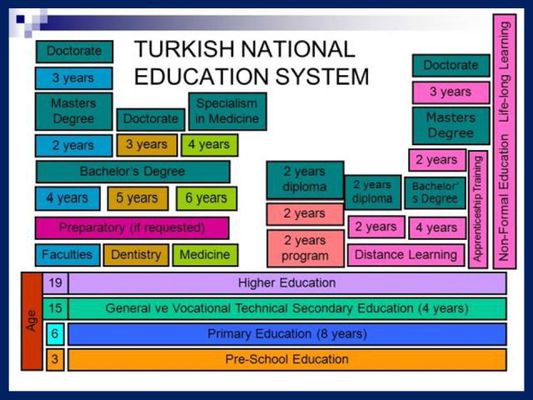
Proje Hedeflerimiz
Hedeflerimiz: folklorun rolünü seminerler, slayt gösterileri, sergilerle açıklamak, öğrencilere akranlarıyla çalışma fırsatı sağlamak, İngilizce dilini öğrenmek için istekli olmalarını sağlamaktır. Her okulda projeyi ve programını tanıtmak için yıllık konferanslar düzenleyeceğiz. Öncelikle her ortak okul PPT veya okullarının, kasabalarının ve ülkelerinin video sunumlarını gerçekleştirecektir. Toplantılar sırasında her okul koordinatörü, ulusal eğitim sistemleri hakkında bilgi paylaşımı yapacaktır. Her okulda bir logo yarışması düzenlenecek, birinci hareketlilik sırasında seçilen logolar oylanacaktır. Her okulda Erasmus + proje köşesi düzenlenecektir. Her hareketliliğin ardından katılımcı öğrenciler izlenimlerini yazacak ve ortaklarına göndereceklerdir. Bu izlenimler ve kitle iletişim araçlarından gelen proje makaleleri, proje portföyüne bir izleme aracı olarak yerleştirilecektir. Atölye ve seminerlerimizin videoları ve fotoğrafları, iyi uygulamaların sonuçları ve örnekleri olacaktır.
Hulusi Gürbüz, okul müdürü Vali M. Lütfullah Bilgin Ortaokulu, Turkey
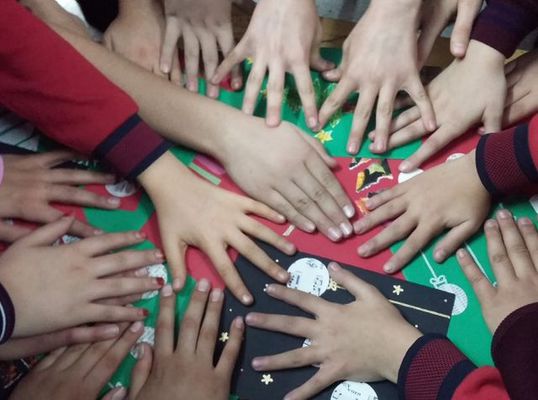
Researches and Achievements in the Project
The pupils involved in the “Folklorica” project prepare a leaflet with information about the project related activities carried out so far. The leaflets will be distributed among local authorities, local media, newspapers, other local schools and other organizations involved in the project. The pupils will also prepare typical and expressive decorations of different regions of partner countries and a multimedia presentation. The results of pupils’ efforts will be distributed among local authorities and other involved organizations in order to promote the implementation of the project. Through research by contacting experts in this field, the pupils get to know and afterwards exchange information about various styles of building houses or other functional buildings in their countries. During some workshops, the pupils will learn how to crochet, to embroider and get to know other ways of preparing various decorations for home using traditional tools and techniques. They will also achieve an encyclopedia of health by preparing 3 - 5 recipes used in the past to be included in it along with the formulas gathered from traditional and alternative medicine followers.
Kristina Joksiene, coordinator, Prezidento V. Adamkaus gimnazija, Kaunas, Lithuania
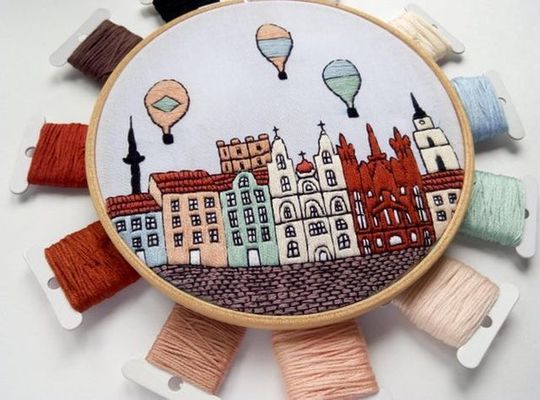
Tyrimai ir Pasiekimai Projekte
“Folklorica” projekte dalyvaujantys mokiniai paruoš lankstinuką su informacija apie iki šiol vykdytą su projektu susijusią veiklą. Lankstinukai bus išdalinti vietos valdžios institucijoms, vietos žiniasklaidai, laikraščiams, kitoms vietos mokykloms ir kitoms organizacijoms, dalyvaujančioms projekte. Mokiniai taip pat parengs tipiškas ir išraiškingas skirtingų partnerių regionų dekoracijas ir daugialypės terpės pristatymą. Mokinių pastangų rezultatai bus paskirstyti vietos valdžios institucijoms ir kitoms dalyvaujančioms organizacijoms, siekiant skatinti projekto įgyvendinimą. Atlikdami tyrimus su šios srities ekspertais, mokiniai susipažins ir po to keisis informacija apie įvairius individualių namų ar kitų funkcinių pastatų stilius. Kai kurių dirbtuvių metu mokiniai išmoks nerti, siuvinėti ir pažinti kitus būdus, kaip paruošti įvairius papuošimus namams naudojant tradicinius įrankius ir technikas. Jie taip pat sukurs sveikatos enciklopediją, paruošdami 3–5 senovinius receptus, kurie bus įtraukti į ją kartu su tradicinės ir alternatyviosios medicinos pasekėjų receptais.
Vita Janusiene, mokytojas in Prezidento V. Adamkaus gimnazija, Kaunas, Lietuva
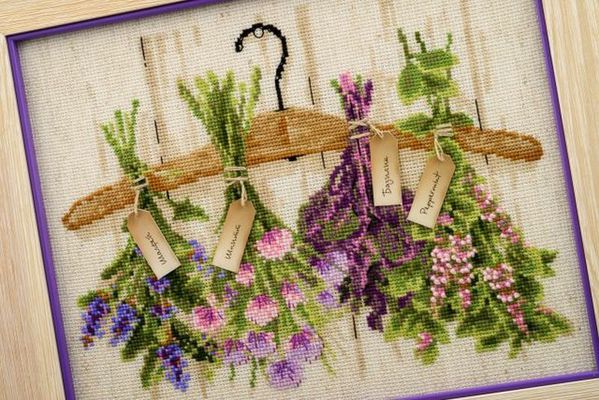
The Active and Collaborative Project Work
For a better communication between partners we created a Google Group. The handcraft or art works exhibitions and bulletin boards are results with a multidisciplinary and trans-disciplinary character, promoting the impact of our activities and the Erasmus+ program. The tests prepared to select our school teams will enrich each coordinator’s portfolio. Many final products (booklets, albums, encyclopedia) will be included in our schools’ curriculum. By an active, collaborative learning and teaching of cultural themes we can apply the best methodologies. We share experiences, ideas and involve participants in decisions, promote pupils’ innovation and creativity like activity diaries, observation sheets, workshops reports etc. Through diagrams, we will prove the involvement in the project activities of our local education authorities. By games, folk dances and songs, the pupils have the chance to show how proud they are of their folk costumes, of their Little March amulets for spring coming.
Mariola Podolska-Maculewicz, Gimnazjum Nr 2 z Oddziałami integracyjnymi im. Michała Kajki, project coordinator
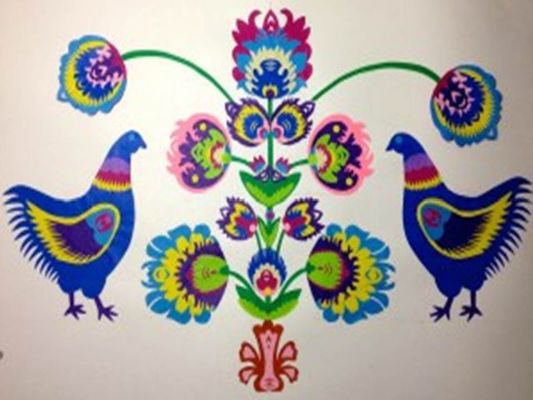
Aktywna i Wspólna Praca nad Projektem
Dla lepszej komunikacji między partnerami stworzyliśmy Grupę dyskusyjną Google. Wystawy rękodzieła i dzieł sztuki oraz tablice informacyjne są wynikiem o charakterze interdyscyplinarnym i transdyscyplinarnym, promującym wpływ naszych działań i programu Erasmus +. Testy przygotowane do wyboru naszych szkolnych zespołów wzbogacą portfolio każdego koordynatora. Wiele produktów końcowych (broszur, albumów, encyklopedii) zostanie uwzględnionych w programie nauczania naszych szkół. Poprzez aktywne, wspólne uczenie się i nauczanie tematów kulturowych możemy zastosować najlepsze metodologie. Dzielimy się doświadczeniami, pomysłami i angażujemy uczestników w podejmowanie decyzji, promujemy innowacje i kreatywność uczniów, takie jak dzienniki aktywności, arkusze obserwacyjne, raporty z warsztatów itp. Poprzez diagramy udowodnimy zaangażowanie w działania projektowe naszych lokalnych władz oświatowych. Poprzez gry, tańce ludowe i piosenki uczniowie mają okazję pokazać, jak dumni są ze strojów ludowych, z amuletów z okazji Małego Marszu na wiosnę.
Dorota Dorozińska, dyrektor, Szkoła Podstawowa nr 2 z Oddziałami Integracyjnymi im. Michała Kajki w Nidzicy, Poland
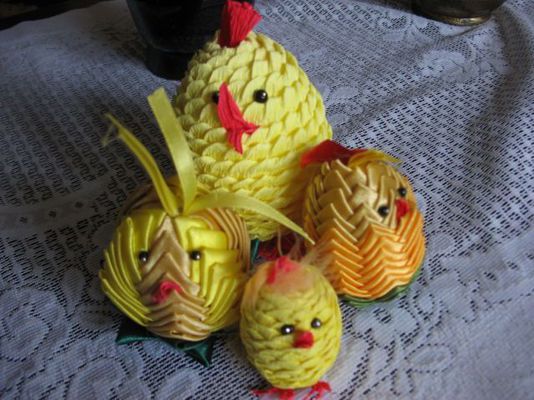
Learning about Customs and Preparing Workshops
In this project, the involved pupils learn about customs related to weddings in each country by the means of digital presentations prepared by each country. They achieve interviews with senior citizens from their regions about traditions and customs that used to be respected in the past. They prepare a report including the gathered information to present it to participants from partner schools. The pupils exchange information about national holidays and present them during videoconference. Together their teachers, the pupils organize a workshop on a chosen ceremony and customs typical only for the region or country. Each school organizes a culinary workshop conducted by elderly people (pupils’ grandparents and other relatives as a part of integrity with local communities) for pupils to take part in. The next step for each partner is to prepare the traditional cake. After the presentation of cakes recipes given partners a cake is chosen at random, the procedure of the preparation is put on website and other media.
Eleni Omerou, coordinator, Gymnasium Apostolou Paulou, Cyprus
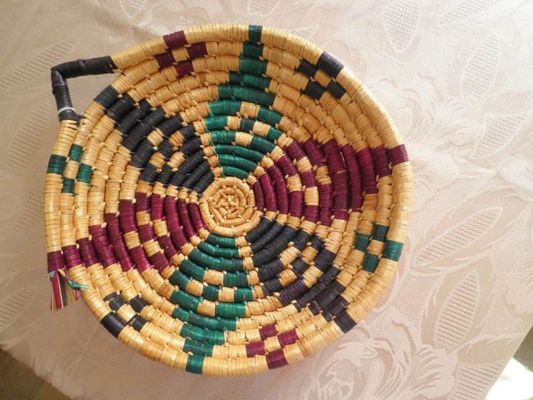
Mathainontas gia ta ethima kai proetoimasía ergastiríon
Se aftó to prógramma, oi symmetéchontes mathités mathaínoun gia ta ethima pou schetízontai me gámous se káthe chóra méso psifiakón parousiáseon pou ekponoúntai apó káthe chóra. Auto to epitugxanoun pernontas synentéfxeis apo ilikioménous polítes ton periochón tous schetiká me tis paradóseis kai ta éthima pou eíchan sto parelthón. Ekponoún mia ékthesi pou perilamvánei tis pliroforíes pou synkentróthikan gia na tis parousiásoun symmetéchontes apó scholeía synergátes. Oi mathités antallássoun pliroforíes schetiká me tis ethnikés argíes kai tis parousiázoun katá ti diárkeia tilediáskepsis. Mazí kathigités kai mathités organónoun éna ergastírio gia mia epilegméni teletí kai ta éthima pou eínai typiká móno tin periochí í ti chóra. Káthe scholeío diorganónei éna mageirikó seminário pou diexágetai apó ilikioménous (pappoúdes mathités kai állous syngeneís os méros tis akeraiótitas me tis topikés koinótites) gia na symmetáschoun oi mathités. To epómeno víma gia káthe etaíro eínai na proetoimásei ena paradosiako gluko. Metá tin parousíasi ton kéik apo tis syntagés pou dothikan apo tis chores, ena keik epilegetai tyxaia kai I diathikasia tis proetoimasias parousiazetai se istoselida se álla mésa enimérosis.
Gabriella Theodosiou , dáskalos, Gymnásio Apostólou Pávlou, Páfos
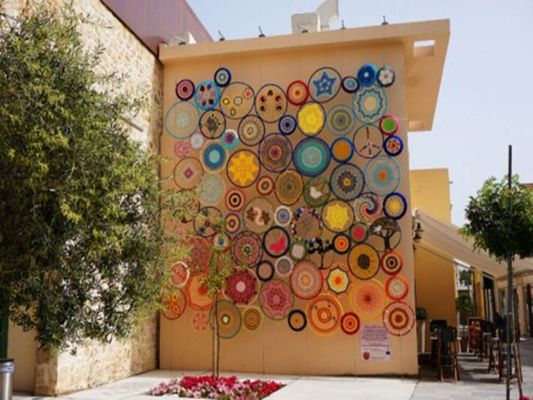
Amazing Activities in the Project
With the help of their parents or grandparents, the pupils involved in the project search for and translate into English the most interesting regional legends, adding to the translation the illustrations of vital points of the stories. They will draw and paint favorite fragments of legends heard during the Fairy Tales Evening. Each partner school will vote online on the best picture, one of each country which will be rewarded. The pupils will prepare an album with superstitions and folk wisdom. Through conversations with senior members of their families and neighbors, they become familiar with various superstitions and check which of them still exist in our regions. The next task is to find out which superstitions are common for all partner countries. The pupils will present traditional games. Each partner country shows project partners how to play the chosen traditional game. The description of the games will be done in English. Then the pupils in each school prepare a regional game to play for 3 age groups - kids, teens and adults. The results are to be shared among partners and can be used during PE lessons.
Sara Gonzalez, coordinator, IES Pérez Galdós, Las Palmas de Gran Canaria, Spain
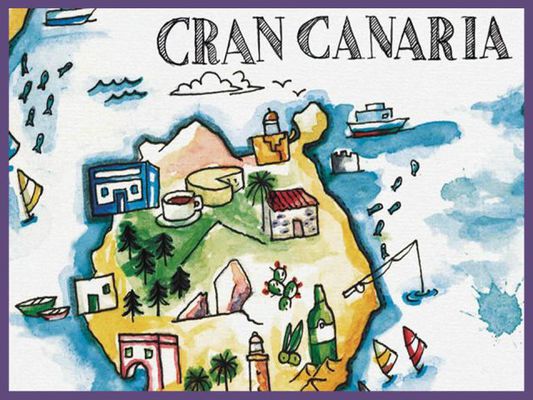
Sorprendentes Actividades en el Proyecto
Con la ayuda de sus padres o abuelos, los alumnos involucrados en el proyecto buscan y traducen al inglés las leyendas regionales más interesantes, agregando a la traducción las ilustraciones de puntos vitales de las historias. Dibujarán y pintarán sus fragmentos favoritos de leyendas escuchadas durante la noche de los cuentos de hadas. Cada escuela asociada votará en línea sobre la mejor ilustración, y una de cada país será recompensada. Los alumnos prepararán un álbum sobre supersticiones y sabiduría popular. A través de conversaciones con miembros de mayores de sus familias y vecinos, se familiarizan con varias supersticiones y comprobarán cuáles de ellas aún existen en nuestras regiones. La siguiente tarea es descubrir qué supersticiones son comunes para todos los países socios. Los alumnos presentarán juegos tradicionales. Cada país socio muestra a los socios del proyecto cómo jugar el juego tradicional elegido. La descripción de los juegos se hará en inglés. Luego, los alumnos de cada escuela preparan un juego regional para 3 grupos de edad: niños, adolescentes y adultos. Los resultados deben compartirse entre los socios y pueden usarse durante las clases de Educación Física.
Carmen Martin Alfonso, director de escuela in IES Pérez Galdós, Las Palmas de Gran Canaria, Spain
